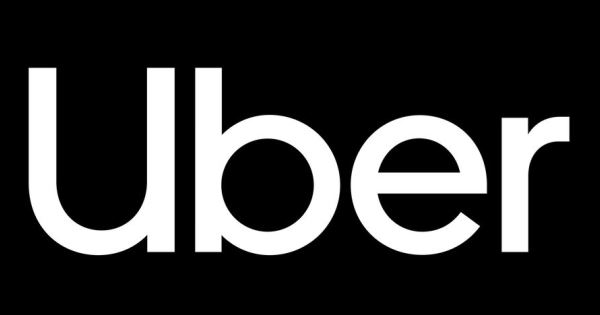General News
FCT Authorities Move to Regulate Uber, Bolt Operations

The Federal Capital Territory (FCT) Vehicle Inspection Office (VIO) says it will introduce a new hybrid licences for all app-based vehicle operators in the territory from February 2022.

FCT VIO Director, Wadata Bodinga, disclosed this during an FCT Transport Stakeholders Meeting on Tuesday in Abuja.
He directed that all electronic-hailing operators must convert their regular vehicle licences to hybrid licences.
Some of the e-hailing companies under this category are: Uber, Bolt, Rida amongst others.
Mr Bodinga disclosed that enforcement of the new directive would start from Feb.1, 2022 as the directorate would commence a free conversion of all operators from Nov.9 to Jan.31, 2022.
He said that because e-hailing vehicles were not conventional taxis, the VIO initiated the hybrid vehicle licensing to have the information of e-hailing drivers.
“We as an agency of government want to have an idea of the people operating these vehicles and not just us having the details of users.
“The licensing will give us the database to know those registered and those operating legally,” he said.
He said that a Driver Certificate Card (DCC) would also be obtained by all drivers after undergoing a one-day mandatory training at FCT Model Driver’s Institute or Lugbe VIO Office, Abuja.
“Voluntary enrollment for the DCC commenced from Nov. 9 to Jan.31, 2022.
“DCC requirements for the conversion are National Identification Number (NIN) and a valid driver’s licence.
“This will help us know the number of operators to promote efficiency,” he stated.
Mr Bodinga, however, said that drivers who fail to convert their vehicle licences to the hybrid type before February next year would have to pay for the conversion.
“It will be an annual payment that will not be exorbitant but there has to be a payment before they could be logged into the portal,” he said.
He further disclosed that to avoid permanent ban from operations in the FCT, all taxi drivers or anyone who wished to offer transportation services for hire or gain must obtain the FCT DCC.
“No taxi or bus will be allowed to operate in the FCT except those who fulfill the following; must have an authorised Side Number.
“Must be registered with a licensed operator, appropriate Zonal Cab Colour, fulfills minimum roadworthiness requirements,” Mr Bodinga said.
He also stated that all motorcycle and tricycle riders must obtain the FCT Rider’s Certification Card.
“No motorcycle and tricycle will be allowed to operate in the territory except those who possess an Abuja registered number plate and authorised side number.
“All riders must have a safety boot, reflective jacket, safety helmet, protective clothing and RCC,” he stated.
He said that the directorate would also stop the operation of all delivery motorcycle riders without registered Mail/Delivery service number plates.
He said, “The mail service number plate is new and different to help differentiate legal operators from the illegal ones.
“Delivery riders must have a valid RCC, delivery box rightly fixed, safety helmet and boot alongside a duly registered Cooperate Affairs Commission and Nigerian Postal Service documents,” he said.
The director further said that the development was as a result of schemes under the newly unveiled FCT Public Transport Management Scheme (PTMS).
“The scheme is to provide an improved frame work, passenger service vehicle operators licensing, tricycle and motorcycle last mile operators licensing, goods service vehicle operators licensing.
“The PTMS is a system that wants to bring all the commercial drivers and vehicles together as one of three things: security, sanity, efficiency and affordability.
“We are harnessing digital solutions, regular user transportation environment which can only be achieved if we can bridge the gap in our administration by its review,” he said.
General News
Kaspersky Reveals How Digitalisation is Influencing Family Life

Kaspersky’s latest global research shows that mostly all people currently interact with their family members digitally: 86% of all participants communicate with family via messaging apps, 58% have regular video calls, and 44% have even established joint streaming service accounts.

While digitalisation offers unprecedented convenience and flexibility in family communication, Kaspersky experts warn that this increased online connectivity demands a heightened awareness of digital safety practices and the protection of devices.
Communication in the digital sphere has become an integral part of everyday life. Thanks to video calls and instant messaging, we can maintain connections with our loved ones, no matter where we are.
Digitalisation has reshaped not only how we communicate, but also how we spend our free time together. Kaspersky has conducted a survey* to reveal the common patterns of modern family life in the digital age and discover the cybersecurity challenges that lurk beneath our screen interactions.
Cyber safety during family communication
According to the survey, regular messaging via WhatsApp, Telegram, Signal, Viber and other messenger apps were top of users’ choices when communicating with their families.
People in the 35-54 age group were the most likely to engage this way, with 89% of respondents choosing this option. Video calls were a much less popular option among respondents as a way of keeping in touch with relatives, with only 58% choosing this digital solution.
Another popular way of staying connected online for many families is exchanging posts and memes on social media and messengers (53%). The 18-34 age group leads this trend with a 58% participation rate, showcasing how humor and shared cultural references are becoming essential family bonding mechanisms.
The older generation (above 55 years old) is in general less digitally engaged than other ages, though the share of those who chat with their families in messengers is on par with the average (85%). 42% of this age group even exchange memes and posts via social media.
Despite the fact that older people are more active in the digital sphere, they may still not be ready to face cyber threats and scams. Users should therefore educate their older relatives on how to stay safe online and use gadgets securely.
Even for advanced users, communication online carries potential cyber security risks. From phishing attempts disguised as legitimate messages to sophisticated social engineering attacks, the digital battlefield operates within our most personal communication channels.
To ensure the complex protection for your messengers it’s highly recommended to enable two-factor authentication where possible, use unique, complex passwords for each account, remain skeptical of unexpected links or attachments, use a reliable security solution with anti-phishing protection for messengers and follow security tips from Kaspersky experts.
Family accounts – convenience or risk?
The survey shows that in their free time 70% of families choose to watch movies together, with 44% having family streaming accounts. Online games do not have such popularity as a family pastime, with only 35% of general respondents opting for them.
While sharing streaming subscriptions and gaming accounts may seem like a cost-effective solution, it opens the door to a host of digital vulnerabilities that can compromise your family’s security and privacy, especially when an account is used by different family members under the same login and password. Such accounts create a perfect storm for security breaches.
If one family member’s device is compromised, hackers gain access to the entire account. Additionally, password reuse across multiple platforms means that a single breach could expose your financial information, email accounts, and other sensitive data. To manage all passwords securely, it’s highly recommended to use a password manager for all family members.
“As our family life moves more and more online, it opens up amazing ways to stay close and create memories – but it also brings new risks, like scams and hacking. Kids and older relatives can be especially at risk, so looking out for each other online is really important.
“Protecting your digital privacy and using cybersecurity measures is an important way to care for your loved ones and keep your family safe”, comments Marina Titova, Vice President for Consumer Business at Kaspersky.
General News
NCC Slaps ₦250,000 Fee on Trial Licences to Spur Telecom Innovation

Nigerian Communications Commission (NCC) has rolled out a new ₦250,000 application fee for companies seeking temporary approval to test innovative telecom services, aiming to fast-track sector modernisation while safeguarding consumers.

NCC
The fee targets the newly launched Interim Service Authorisation (ISA), a short-term licence enabling telecom operators, startups, and tech firms to trial novel offerings in live markets before full commercial rollout. Contained in NCC’s freshly published General Authorisation Framework, the charge covers administrative processing, with successful applicants potentially facing extra costs for spectrum or numbering resources.
Under the rules, firms pay the ₦250,000 upfront upon application. Trials run for an initial three months, renewable once up to six months total, capped at 10,000 users and restricted geographically. Operators must prove their service is genuinely new, detail regulatory hurdles, outline consumer safeguards, and submit monthly reports, all while upholding data protection, security, and rights obligations.
NCC Executive Vice-Chairman Aminu Maida, who previewed the draft in July, said exploding tech advances had outstripped old licensing models, necessitating reform to foster innovation without skimping on public safeguards. The ISA lets providers gauge technical viability, market appetite, and risks, while regulators scrutinise quality and impact pre-scale-up.
“This framework strikes a balance—unleashing experimentation in spectrum sharing, Open RAN, and alternative connectivity, minus the pitfalls of unchecked rollouts,” an NCC statement noted. Participation offers no automatic path to full licences; commercial bids hinge on fresh evaluations and category fits.
Industry players hailed the move as a risk-reducer for unproven ideas, potentially slashing flop costs in Nigeria’s cut-throat telecom arena. With participation limited and monitoring rigorous, the NCC bets on controlled pilots to propel breakthroughs, cementing Africa’s giant as a digital vanguard.
As operators eye 5G-plus frontiers, the ISA arrives amid investor clamour for agile rules, positioning Nigeria to harvest homegrown tech leaps without consumer blowback.
General News
Naira Smashes Through ₦1,400 Barrier in Official FX Rally

Nigerian naira strengthened to a record high of about ₦1,400 to the US dollar at the official market during midweek trading, continuing an appreciation trend seen since the start of the week.

FX
Data released by the Central Bank of Nigeria (CBN) showed that the currency appreciated by 1.26 per cent on Tuesday, January 27, at the Nigerian Foreign Exchange Market (NFEM), with the dollar quoted at ₦1,401.22. This represented a gain of ₦17.73 compared with the ₦1,418.95 recorded on Monday, January 26.
The naira had already posted significant gains in the previous session, closing at around ₦1,401.20 per dollar, its strongest level since the introduction of the Electronic Foreign Exchange Matching System (EFEMS).
The currency has recorded incremental daily gains in recent sessions, rising between 0.1 per cent and 0.36 per cent on some trading days. In the parallel market, bureau de change operators in Lagos quoted the dollar between ₦1,475 and ₦1,490 on January 27, with average buying and selling rates of ₦1,480 and ₦1,490 respectively.
Market analysts attribute the improved performance at the parallel market to enhanced foreign exchange liquidity and further regulatory reforms implemented by the CBN.
The naira has sustained its upward momentum into early 2026, building on the gains recorded in 2025, when it posted its strongest performance in over a decade, appreciating between 7 and 9 per cent against the US dollar.
Analysts generally expect the currency to remain within a relatively stable range in the medium term, with several projections indicating it will trade between ₦1,400 and ₦1,500 to the dollar this year, supported by improved liquidity and ongoing macroeconomic reforms.
The Nigerian Economic Summit Group has projected that the naira will trade at around ₦1,480 to the dollar in 2026. The group also expects Nigeria’s external reserves to rise steadily to about $52 billion, driven by the consolidation of recent reforms and sustained stabilisation efforts.

 E-Financial2 days ago
E-Financial2 days agoCBN Upgrades Licences of Opay, Moniepoint, Kuda, Palmpay, Paga to National Status
- E-Financial2 days ago
Nigeria’s 9 Top FinTech Firms Valued at $10.6Bn in January 2026

 News2 days ago
News2 days agoTech Executives Double Down on AI, Talent and Adaptive Strategies to Lead in the Intelligence Age

 E-Financial2 days ago
E-Financial2 days agoNIBBS to Boost Financial Inclusion with Offline Payment Solutions

 News2 days ago
News2 days agoDHQ Indicts Brigadier General Abubakar Sadiq, 15 Others in Alleged Coup Plot againt Tinubu

 E-Business2 days ago
E-Business2 days agoFirm Identifies AI as Common Denominator in Entertainment Industry’s 2026 Security Threats

 General News2 days ago
General News2 days agoWEBINAR: Techeconomy Business Series Hosts Experts from MTN, Interswitch, BusinessPlus, others this Wednesday

 News2 days ago
News2 days agoCourt Fines Airtel N210m for Unauthorised Use of ‘Nigeria Go Survive’ Song



























